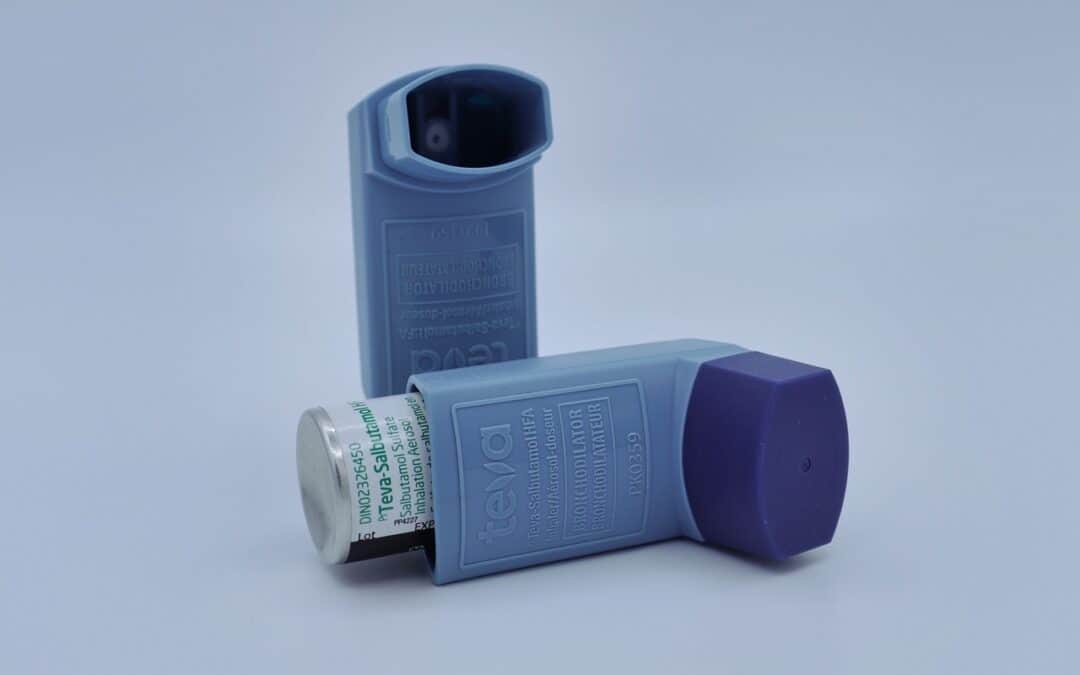Spring is finally here, and everything is in bloom – which means the air full of pollen, ready to trigger your seasonal allergies. If you are one of the 50 million Americans who suffer from allergic rhinitis (aka hay fever or seasonal allergies), you may have itchy eyes, a runny nose, and regular coughing and sneezing. But if you are noticing that you are also having trouble breathing, you may not only suffer from allergies, but also asthma. While there is some overlap in symptoms, the underlying cause is different. It’s possible to have just seasonal allergies, just asthma, or both.
What are seasonal allergies?
Allergies are a common cause of respiratory discomfort, especially in the spring and fall months when the weather changes. Seasonal allergies are caused by pollen in blooming plants (including trees, flowers, and grasses). When winds pick up, pollen gets dispersed into the air, and, eventually, into your respiratory system.
In an allergic reaction, immune system proteins (antibodies) mistakenly identify harmless substances as invaders. The antibodies bind to the allergen to protect your body from it.
Your immune system then releases chemicals, which leads to allergy signs and symptoms: nasal congestion, runny nose, itchy eyes and/or skin reactions. These chemicals can also affect the lungs and airways in some people, which leads to asthma symptoms.
Over-the-Counter Allergy Treatment
There are also many over-the-counter medications that treat allergy symptoms, such as Cetirizine (Zyrtec), Fexofenadine (Allegra), and Loratadine (Claritin) are daily medications that can reduce your symptoms. For severe allergy attacks, Diphenhydramine (Benadryl) can be taken short-term, though it may cause drowsiness.
What is asthma?
In contrast, Asthma is a disease that affects your lungs. Symptoms include wheezing, breathlessness, chest tightness, and coughing at night or in the morning. The symptoms of asthma can be controlled by avoiding the triggers that cause attacks and by taking medicine.
Asthma has many triggers, one of which is seasonal allergies. However, seasonal allergies don’t generally cause asthma; they just exacerbate the symptoms of the underlying disease.
Asthma Treatment
Asthma must be diagnosed by a physician. Once you have a diagnosis, there are a number of medications in addition to the ones listed above – most commonly, bronchodilators. Asthma can usually be managed with rescue inhalers to treat symptoms and controller inhalers that prevent symptoms. Severe cases may require longer-acting inhalers that keep the airways open, as well as oral steroids.
When to see a doctor
If you are suffering from allergy symptoms or other respiratory symptoms and over-the-counter medications are not helping, it may be time to see a doctor to discuss further testing and treatment. If you have been diagnosed with asthma, and your symptoms are not improved with your current medication, contact your doctor to review your medications and see if any changes need to be made. Seek emergency medical care if you experience severe shortness of breath, chest tightness or pain, and coughing or wheezing.
With three locations Liberty Urgent Care Name is here to help you. If you are suffering from severe seasonal allergies and not sure what steps to take next, we can help diagnose and treat you. Reserve a spot online or walk in today.






